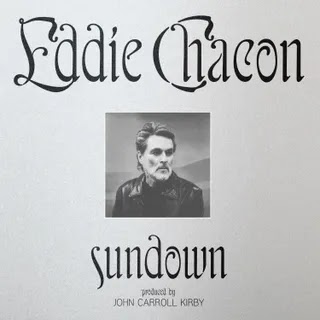The singer and former G.O.O.D. Music signee returns with a palette of adult contemporary synth-pop and early-’10s R&B. It’s bright and open, built with sounds that move and breathe with the artist.
Kacy Hill, the 26-year-old singer and erstwhile model from Phoenix, Arizona, explores acceptance across her second album, Is It Selfish If We Talk About Me Again, a collection that she’s self-released after five years with Kanye West’s G.O.O.D. Music. It was affiliation that cast an austere, serious pallor over her 2017 debut, Like a Woman, and also placed her against Travis Scott on one of his earliest hits, “90210,” juxtaposing her real and fragile soprano with his lurid Auto-Tune raps. In a way, that song summarized her time with the label: unfairly cast as a complement or texture and not given space to focus on herself or her sound.
The acceptance Hill seeks on Is It Selfish If We Talk About Me Again is primarily of herself. The album acts as a therapy session, filled with bits of advice that suggest countering times of pain or heightened worry with patience and trust. On the effervescent single “Porsche,” Hill sings, “No one’s gonna tell you/It isn’t all about you,” a guiding principle for an album whose core conflicts originate in loneliness, insecurity, and heartbreak. The issues are not trivial but common, and Hill acknowledges their universality and rejects the urge to dwell, instead focusing on the ways she can better herself. It’s comforting to hear a pop record embrace life’s in-betweens.
As she admits her troubles, Hill embraces joy. Is It Selfish is bright and open, built with sounds that move and breathe with the artist, instead of existing beside her—as was often the case on her debut, when she and the beat seemed to take turns at the microphone. Hill co-produced all but one song on Is It Selfish, working primarily with Francis and the Lights, BJ Burton, and Jim-E Stack for a palette of adult contemporary synth-pop and early-’10s R&B. The atmosphere suits Hill, whose voice requires similarly delicate tones and supplemental melodies to add some heft to her careful singing. Previously, on her G.O.O.D. songs, which were often criminally minimal, it could sound like she was suffocating in total emptiness. There is now real momentum to her work, a feeling that you’re self-discovering alongside her.
Still, Is It Selfish gains strength from Hill’s ever-present doubt. The album’s title, the opening line of “Much Higher,” is an admission that, no matter how much she hurts, Hill feels reluctant to open her own wounds at the risk of taking up others’ space and energy. It’s unclear what sort of answer she’d accept from the titular question (which pointedly lacks a question mark), but what is evident is that she wants to channel her diffidence into supporting and loving others. Later on “Much Higher,” Hill sings, “Do I tell you enough to thank you right?/’Cause nothing matters as much.” In Hill’s world, goodness can still emerge from darkness and you must confront your own faults in order to show love to others.
Across the album, Hill details little moments—car rides, rainstorms, late nights lying awake—that give life to her emotional and psychological breakthroughs and setbacks. The album’s best and final song, “Dinner,” is a story of unrequited love that Hill colors with two small stories that capture the sweetness and plainness of everyday life: a night getting too high with this other person and needing their warmth, followed by the smell of California, bringing to mind the scent of “Arizona after warm thunderstorms,” the prettiest four words on the record. The song captures the album’s themes and moods succinctly: Hill is longing but resolute. When she encounters disappointment, she doesn’t aim to change the circumstances but hopes to share tenderness, singing, “You could love me the same.” She’s content.
View the original article here
















0 comments:
Post a Comment